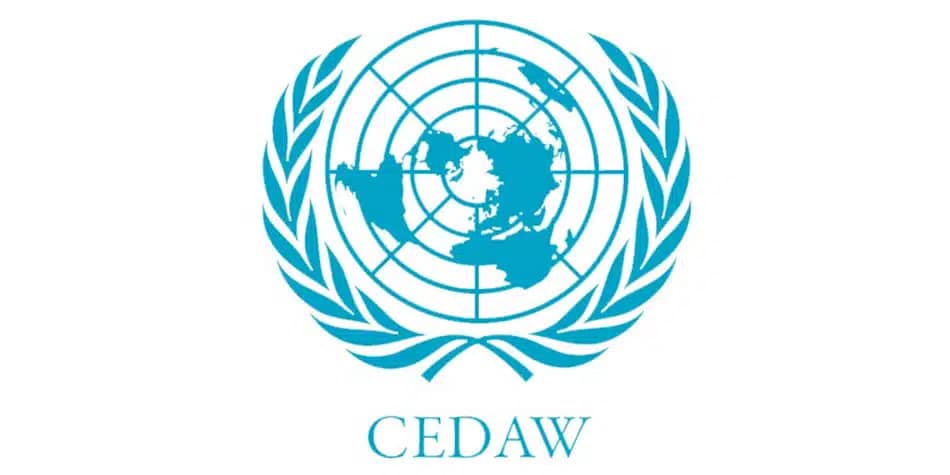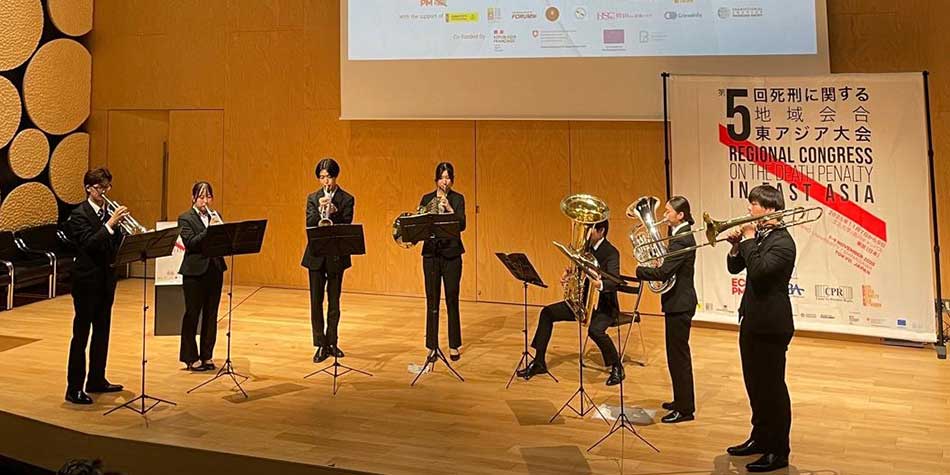
Abolitionist advocacy at the 89th CEDAW Session
Advocacy
The 89th session of the Committee on the Elimination of Discrimination Against Women (CEDAW) took place in Geneva, Switzerland, from 7 to 25 October 2024.
The Committee reviewed the status of Benin, Canada, Chile, Cuba, Japan, Lao People’s Democratic Republic, New Zealand, and Saudi Arabia. During this session, the World Coalition Against the Death Penalty (World Coalition) actively advocated for the abolition of the death penalty, highlighting gender discrimination at work in the application of the death penalty in Saudi Arabia, Laos, and Japan.
THE WORLD COALITION HIGHLIGHTS GENDER DISCRIMINATION IN THE APPLICATION OF THE DEATH PENALTY
Leading up to the session, the World Coalition and its member organizations submitted reports for the review of Saudi Arabia (report submitted with ESOHR and TAHR), Laos (report submitted with HRI and TAHR), and Japan (report submitted by FIDH and CPR Japan) highlighting discrimination faced by women exposed to the death penalty. For the three countries, reports raised issues such as the lack of adequate legal representation, prison conditions failing to meet gender-specific health and hygiene needs, and judicial practices that overlook gender-related mitigating factors.
During the session, gender bias at work in capital punishment in Saudi Arabia and Laos was raised by the Women and Gender Project Manager of the World Coalition during oral declaration made during the NGO private meetings and the briefing lunch.
The focus on Saudi Arabia included critical areas such as the country’s lack of transparency regarding the application of the death penalty, the high rate of executions of migrant women, and the need for disaggregated data to reveal the extent of death row demographics by age, nationality, and gender. In Laos, the World Coalition raised concerns about the failure to provide adequate legal assistance, particularly for women facing death sentences for drug-related offenses, and the systemic discrimination impacting their right to fair trial. For Japan, the focus was on detention conditions, including the intrusive 24/7 surveillance system to which individuals on death row are regularly subjected.
CEDAW EXPERTS ADDRESS DEATH PENALTY ABOLITION ISSUES
Throughout the constructive dialogues, CEDAW Committee experts expressed deep concerns about gender discrimination and human rights abuses faced by women on death row, particularly in Saudi Arabia. Among others, they questioned Saudi officials about transparency in capital cases, the specific conditions faced by migrant women subject to the death penalty and the Kingdom’s position to support the moratorium on the use of the death penalty, noting that the upcoming World Day Against the Death Penalty could be an opportunity for such a commitment.
The experts also highlighted the Kingdom’s obligation to consider gender-related mitigating factors, particularly in cases where women face capital punishment due to circumstances of self-defense or gender-based violence. Saudi Arabia’s delegation responded by defending its judicial processes, stating that death sentences are reserved for the “most serious crimes”. The World Coalition, with the support of its members Reprieve and ESOHR, was able to provide additional information to the CEDAW experts, exposing the false claims made by Saudi officials.
As a result, the Committee’s concluding observations underscored the need for Saudi Arabia to halt executions, adopt a moratorium, and ensure fair trials that account for gender-specific mitigating factors, including trauma and economic pressures.
Similarly, CEDAW experts recommended Japan to ratify the Second Optional Protocol to the International Covenant on Civil and Political Rights (ICCPR).
Once again, the World Coalition’s efforts at the 89th session resulted in a concrete commitment from the CEDAW Committee’s experts on gender and death penalty issues and confirmed a new stage in demonstrating the discriminatory nature of the death penalty and advocating for its abolition.






